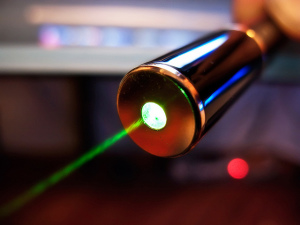
Sustaining a spine injury can be devastating – and can lead to significant pain, dysfunction, and loss of mobility. In recent years, laser spinal surgery has appeared on the scene, touted as a quicker and easier option than typical spinal surgery and performed for a variety of spinal conditions—with mixed results.
Many patients with a spine injury try to educate themselves with internet research when trying to decide whether to have surgery, and what type to have. While laser spinal surgery can be less invasive, and effective in some cases with a certain diagnosis, there are many conditions that it is not effective in treating.
Laser spine surgery is heavily marketed on the internet and TV as “better and safer” than traditional surgical techniques, and claims to give a “quicker recovery.” These claims are unproven and can be mis-leading. Patients often assume that “laser” means more technically advanced. Before you choose laser spinal surgery, it may be best to do your homework on the facility preforming the surgery. You should also get more than one opinion from an experienced spine specialist. Please contact my practice if you have any questions or are considering laser spinal surgery.
What is laser spinal surgery?
Laser spine surgery refers to a procedure where a small incision is made, and a laser is used during a portion of the procedure to remove some tissue. The main purpose of this procedure is to reduce the pressure on a compressed nerve.
Pros:
- Most patients can go home the same day as the procedure.
- In some cases, minor spinal conditions can be successfully addressed.
- The procedure requires an incision less than 1 inch long.
- Some patients have experienced a quick recovery.
Cons:
- There are many spinal conditions that cannot be cured or alleviated with laser spinal surgery.
- Laser spine surgery may only treat portion of the problem, which results in residual symptoms or recurrent symptoms.
- The heat that comes from a laser has the potential to damage nearby nerves and possibly cause more pain.
- Bone still needs to be removed to get the laser into the spinal canal, and that can lead to spinal instability and back pain.
- The procedure is heavily marketed to appeal to patients natural tendency to want a small incision, but may not be able to deliver the desired result.
Many people think that laser surgery is always better than surgery without a laser. Although the laser is helpful for certain procedures, not all spinal conditions can be safely or appropriately treated with a laser – and using a laser does not always provide advantages over other techniques.
Before considering any procedure, always speak with your physician. For minor back pain, consider a physical therapy program and an ongoing stretching regimen to release the stress on your back.
We want to hear from you! Have you considered laser spine surgery? Tell us your thoughts on the procedure on our Facebook page.










